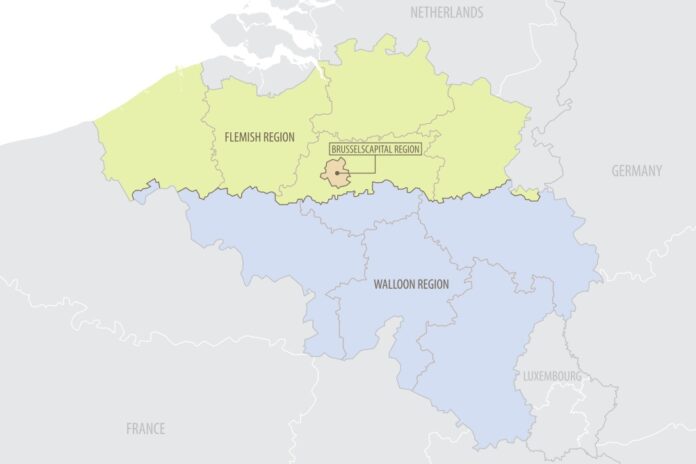The joint effort is to reach almost 1.4 million home and businesses in areas of low-to-medium population density – they are awaiting approvals which they hope to win in Q4 2025
Orange Belgium and Proximus have signed a Memorandum of Understanding (MoU) to expand fibre deployment and increase access to gigabit networks in Wallonia. This is one of Belgium’s three regions, covering the southern part of the country. It accounts for about 55% of Belgium’s territory and about a third of its population. The proposal is similar to a model established in Flanders, another region in Belgium, to expand access to faster broadband.
The parties say the MoU formalises their shared commitment to jointly expand fibre deployment and improving access to gigabit networks in less densely populated areas of Wallonia while reducing the disruption caused by laying fibre. The proposed agreement means about 70% of homes in Wallonia would have access to FTTH.
The intended collaboration should benefit nearly 1.4 million homes and businesses in medium-to low-population-density areas. In large cities and densely populated areas, Orange Belgium and Proximus will will continue to roll out their respective networks independently.
In medium-density areas, Proximus, through its joint venture Unifiber co-owned with Eurofiber, will continue to roll-out Fiber-to-the Home (FTTH) to 600,000 homes and businesses, and will gradually welcome Orange Belgium customers.
In less densely populated areas, Orange Belgium and Proximus will work together to make FTTH networks accessible to some 200,000 homes and businesses. Volumes will be distributed evenly, favouring the most cost-efficient deployment methods. Proximus will gain access to Orange Belgium’s fibre network, and Orange Belgium will gain access to Proximus’ fibre networks.
Not all full fibre
In the most sparsely populated zones, Proximus will start offering services using the Hybrid Fibre Coax (HFC) Orange Belgium’s network for approximately 600,000 homes, which will allow to offer gigabit speeds throughout Wallonia.
This complementary approach helps avoid the creation of additional construction sites. The parties say it also enables faster deployment, reduces disruption for residents, improves coordination of works with local authorities, and ensures better cost control.
Discussion and regulation
The signing of the MoU is the result of constructive discussions over the past months following the BIPT’s and BCA’s announcements in October 2023 that they were willing to consider possible collaborations between operators.
The conditions for implementing this Memorandum of Understanding will first be discussed with the Belgian Competition Authority and the BIPT. The parties say there will be further details until the cooperation agreement is formally signed, which they anticipate will take place at the earliest in the fourth quarter.
Combining investment and assets
Xavier Pichon, CEO at Orange Belgium, commented, “Leadership in network infrastructure is one of the main pillars of our Lead the Future strategy. Our own HFC network, complemented by agreements with Wyre, already provides 1Gbps access nationwide.
“We are very pleased to have signed this pre-agreement with Proximus, which will enable more Walloon homes and businesses to access gigabit networks, and ensure a disciplined, optimized and responsible deployment of FTTH network, thereby minimizing roadworks and customer disruption.”
Jan Van Acoleyen, CEO ad interim of the Proximus Group, added, “Collaboration between operators is a key enabler for speeding up and expanding digitalisation in Belgium. It’s a win-win situation for citizens, businesses and operators.
“The Memorandum of Understanding between Proximus and Orange Belgium for Wallonia is in line with the same envisaged cooperation dynamic by operators in Flanders. This approach allows us to optimize our investments, but above all to offer our customers more accessible and sustainable gigabit connectivity. We will continue the constructive negotiations between operators, always in close collaboration with the competition authorities, in order to achieve this ambition, which is beneficial for the whole country.”





